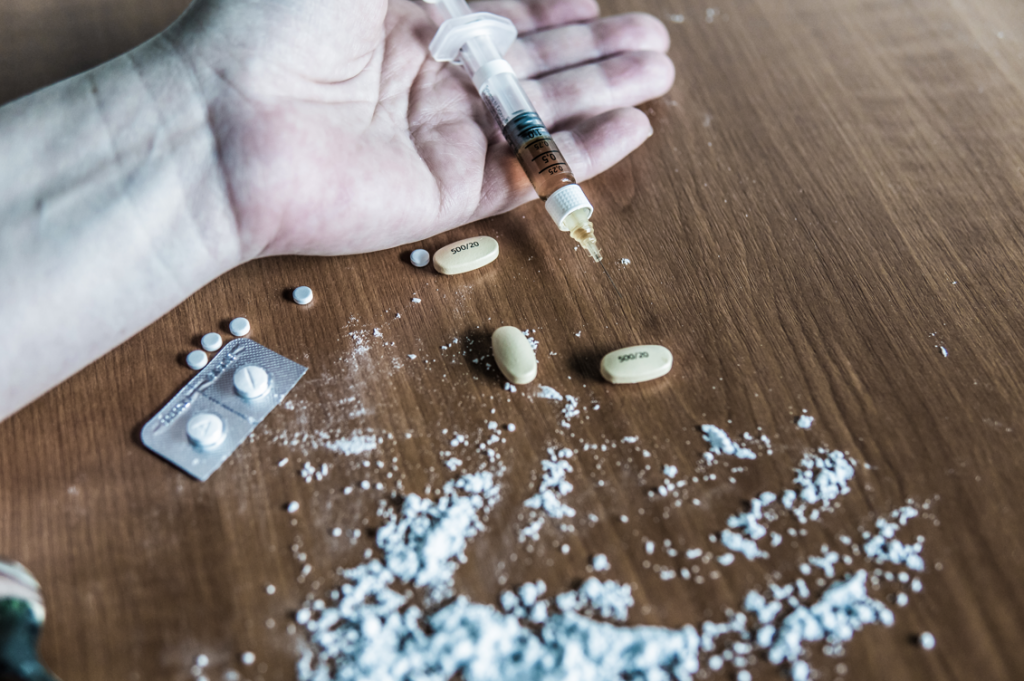
Up to one hundred times more potent than morphine, fentanyl is a strong narcotic opioid that is frequently abused (1). Often prescribed for chronic pain due to an accident, surgery or cancer, fentanyl is widely considered safe and effective when prescribed by medical professionals. It was originally used as an anaesthetic as it offers fast-acting pain relief in very small quantities, but its heroin-like effect leaves it open to misuse.
Fentanyl works on the opioid receptors in the brain, reducing pain and increasing pleasurable sensations. This intense high makes it highly addictive and, when used outside of the prescribed dose, this can lead to dependence and addiction. Powerful opioid drugs are incredibly dangerous, even deadly, in high doses and treatment at a residential clinic is the only way to overcome addiction safely.
At Delamere, we help people to withdraw from opioids, like fentanyl, in safe and comfortable surroundings. From our purpose-built haven in Cheshire, we
support guests through a clinical drug detox to ensure a safe withdrawal from fentanyl, before working through the reasons for dependence and the best path to recovery. If you, or someone you love, needs help with painkiller addiction, we are here to help you every step of the way.
Why is fentanyl so dangerous?
Since the 1980s designer drugs, or chemical analogs, have been created in underground illegal laboratories. Largely based on the fentanyl molecule, this includes drugs like ecstasy, ketamine and MDMA. Synthetic drugs are designed to be almost identical to the original drug, but as users don’t know exactly what they contain, or how strong they are, the potential for accidental overdose is high.
People become addicted to fentanyl by using it illegally, either by abusing their prescription or buying it on the street. Many people mix fentanyl with heroin or use it as a substitute. It is also mixed with cocaine or mis sold as oxycodone. When cut with other drugs, fentanyl’s potency, quality and purity can’t be determined and this has unpredictable effects on the body, with deadly consequences. Synthetic opioids, primarily illegally made fentanyl, have accounted for the majority of drug overdose deaths in the US in recent years. 36,000 people died from opioid overdose in 2019 and the latest data suggests this has risen further during the COVID-19 pandemic (2) (3).
At Delamere, we specialise in opiate addiction and the abuse of other opioids, such codeine, morphine and oxycodone. We understand how difficult it is to accept you have a problem with fentanyl and can help you out of your addiction in comforting and restorative surroundings. Our individually tailored rehab programmes combine a medically assisted drug detox with a variety of therapeutic practices in the UK’s only purpose-built facility.
Signs and symptoms of fentanyl addiction
Fentanyl is readily available as tablets, sprays, injectables and patches. Even if prescribed, and used for only a short period of time, it can become highly addictive. Someone who is addicted to fentanyl may try to obtain it from other sources, take it for longer than recommended or take more of it than they need. They will also appear agitated and stressed if they run out of supplies.
People who abuse fentanyl may also change the method of administration (for example, scraping it off a patch, heating it and injecting it) to increase its potency. If you see any of the following signs of fentanyl addiction in yourself or a loved one, it’s time to get professional help.
Behavioural signs of fentanyl addiction
When someone has an addiction, you may notice a change in their behaviour that can’t be dismissed as side effects. These include:
- Withdrawing from social situations
- Displaying erratic behaviour
- Unpredictable mood swings
- Unnecessary risk-taking
- Overlooking personal hygiene
- Lethargy and lack of appetite
Psychological signs of fentanyl addiction
As with all opioids, fentanyl causes an imbalance of chemicals in the brain which can have a profound effect on mental health. A person who is addicted to fentanyl may show signs of mental disorders that effect their personality. As they take fentanyl in higher amounts, they may appear to be in a permanently dream-like state. Psychological symptoms to look out for include:
- Anxiety and depression
- Low mood
- Disorientation
- Paranoia
- Hallucinations
Physical signs of fentanyl addiction
Prescription drug abuse also takes it toll on the body. You can tell if someone has developed a physical dependence on fentanyl if they display certain signs when they decrease their dose. Stopping taking any opioid medication suddenly can result in lethal withdrawal symptoms. Always speak to your doctor before altering painkiller medication. Physical signs that someone has become addicted to fentanyl include:
- Drowsiness
- Shallow breathing
- Loss of appetite
- Nausea
- Digestion problems
- Ulcers in the mouth
- Pale skin
Fentanyl overdose and withdrawal symptoms
People who take drugs that have been mixed with fentanyl, such as heroin, may not even realise they are taking it. Fentanyl is more potent than heroin because its chemical structure is slightly different and, as such, it can be lethal in very small doses. Signs someone has taken too much fentanyl include:
- Low blood pressure
- Drowsiness
- Dizziness
- Pupil changes
- Cold skin
- Laboured breathing
- Unconsciousness
- Coma
How can Delamere help with Fentanyl addiction?
If you, or someone you love, is struggling with fentanyl addiction, we are here to help. The first line treatment for people with an opioid use disorder is medically assisted treatment (MAT) along with psychosocial therapy. At Delamere, we offer personal residential rehab programmes which start with a comfortable drug detox at our purpose-built wellness retreat.
If your body and mind has become dependent on fentanyl, we will help you to avoid the unpleasant side effects of withdrawal and introduce therapeutic practices to lead you into active recovery. You will be supported by a team of caring professionals who are experts in opiate addiction. They will allow you the space and time to work through your problems in individual, group and family therapy sessions.
Our programmes include a range of evidence-based treatments, such as CBT, and progressive somatic healing techniques, including equine therapy, to help you rebuild your life without reliance on drugs. We take a holistic approach to treatment for fentanyl addiction, helping you to understand its impact not just physically and psychologically, but also emotionally. By pinpointing the cause of your addiction, we can develop strategies that you can use to avoid your triggers, plan for success and grow beyond addiction.






